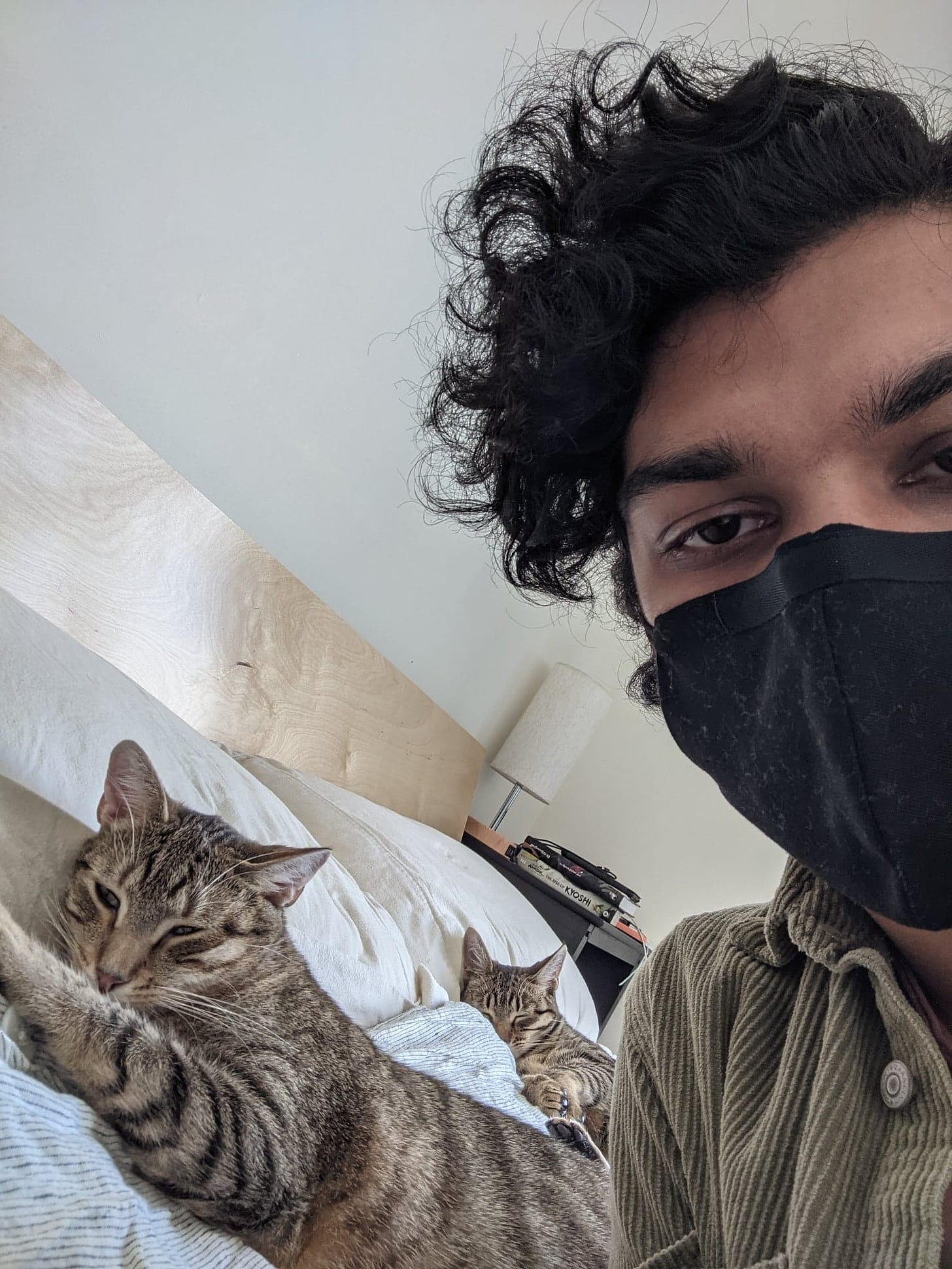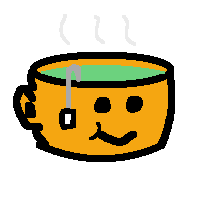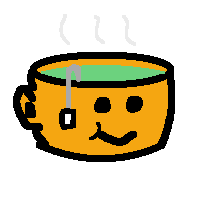The Internet's Grown Without Me
GameStonk's melting my cynical attitudes towards the online world

Hello! It’s been a couple of weeks since I last spoke to you and I have missed you dearly. I’m keeping Only Child bi-weekly for the coming future, but depending on my schedule, I may return to weekly. Either way, I’ll keep you posted and well-hydrated with my amateur green tea renderings!
Ok so I think everyone’s heard about the GameStop thing. Look how time flies. One day, I’m buying used Pokémon games from the mall GameStop, the next, Redditors are blasting the stock value through the roof to exact retribution against hedge funds. I suppose that’s the moral arc of the universe or whatever. And maybe it’s because I played those sample video games in the corner of every mall GameStop growing up, where the controller and console are zip-tied to a wall or a pole or something and you can play a few minutes of Mario Tennis ten inches away from the screen, or maybe it’s that Wall Street’s classist hypocrisy has been exposed, but either way, I’m thrilled at this development.
But I’m not here to talk shop. I barely understand finances, let alone money, let alone the IRS. What this got me thinking about is how I’ve deeply misunderstood the ways in which the Internet connects people. Growing up, parents and teachers told me everything you put on the Internet stays there forever. They said this sternly with at least one finger raised. I remember making a Facebook account in high school and obsessing over what pictures to put up and what messages to post, thinking more about how my profile came across than making friends. For high schoolers, that’s what early 2010s Facebook was, anyways: this new, vaguely defined template to fill with our confused, burgeoning identity. It wasn’t really about friendship. Most social media started out that way, I think, including Twitter and Instagram, and sometimes I scroll through my old accounts and cover my entire face at what I tweeted and retweeted respectively:

No one told me how to use the Internet. It was a no-man’s land that changed constantly, from AIM to G-chat to Facebook chat and beyond. The main ways I used it through my K-12 youth was making corny jokes, doing homework, and browsing Wikis of books I loved. Not so different from real life. I passively absorbed the world and tossed back a few funny status updates or captions to feel like a participant, like a coin thrown in a street musician’s hat. I wasn’t so different in real life, either. Quiet, bookish, prone to cracking jokes during awkward pauses. Funny how you’re always yourself everywhere you show up.
I wish I’d had a Tumblr. A friend recently told me how uncorrupted Tumblr’s stayed over time. Devoid of ads, known for its supportive environment, and held together by a feverishly passionate cult following of healthily-angsted post-teenagers, Tumblr’s maintained a purity that puts the rest of the Internet’s strongholds to shame. I look back and kick myself for completely missing out on it because it was “confusing” or “emo” or “for girls.” And I never joined Myspace, so I can never commiserate with my friends when it comes up and they look back at it all glossy-eyed; instead, I usually wait for the right moment to clear my throat and say, “Well, I never actually had a Myspace.” And then someone’s like, “What? Gee whiz, you missed out,” and I say, “Yeah, I get it, Marvin.” And then I think what if I just created a Myspace now to be edgy?
Just kidding, I won’t do that. Instead of Myspace, my formative Internet exposure happened in seventh grade, when I joined a Super Smash Bros. clan, which means I hung out in online forums dedicated to competitive Super Smash Bros. Brawl with classmates I never talked to in real life. We’d hop onto the chat after school and plan matches with each other, occasionally posting in the forums about how to master our aerial game or chain-grab Yoshi. Strictly professional. We never discussed anything else besides the occasional shit-talking. I even learned to make signatures, or rectangular graphic designs of game characters that would appear at the bottom of a forum member’s responses, and I’d fulfill people’s signature requests every so often. It was fun, but it was transactional. Nobody stayed in touch outside of our games.
So after I peaked in late middle school with my Super Smash Bros. clan and suffered the mental agitation that Facebook guarantees, I quit social media on Election Day 2016 (no correlation; I quit before we elected a fascist) thinking the Internet was chipping away at my sanity. The ensuing mental lull felt great—I no longer concerned myself with online appearance, but then I moved to Seattle and barely knew anyone. My world shrank. I didn’t know what was going on in my friends’ lives, I was too proud to reach out, and I lost touch with the world while Seattle rained all over me. No matter how lonely I felt, though, I took pride in my Internet abstinence, as though it were this drug to be avoided instead of a tool I could use.
Then, about three years later, I returned to Twitter and Instagram, and everything was different. Buncha new features like “stories” and business accounts and stuff. More impressive than that was how prevalent anonymous communities had become, like on Reddit. The Internet had changed even more, evolved into something independent. Which was weird, because the Internet was supposed to be a place for outcasts who couldn’t deal with the real world. And then here I am years later seeing people make thousands off their YouTube video essays, sell goods on Instagram, and meet strangers on Twitter. The attitude’s shifted, and the pandemic’s helped. Without the good side of the Internet, the only people we’d have are those physically next to us, and sometimes, those people suck.
Now here we are in 2021, where a group of anonymous Redditors has banded together to boost GameStop stock as almost this in-joke that snowballed into a real world movement. If this had happened years ago, I might’ve laughed and ignored it, thinking it was just a one-off lightning-in-a-bottle initiative. Now, I’m not so sure. People have been using the Internet to organize politically, to participate. Why didn’t I ever think of that? It’s a place full of meaning. No one talks about using the Internet as a way to give back. So when I look at the GameStop fiasco, this chaotic meme-to-meaning progression of events that only anonymous Internet users could coordinate, I realize, as a 25-year-old whose prime Internet and Smash Bros. years are behind him, what I missed out on, and whether it would’ve been so bad if everything I posted on the Internet stayed there, waiting for some beautiful screen-fatigued soul in another corner of the world to find it.
Other Things Of Note
This newsletter post Just Learning Now by the amazingly talented writer Bud Smith. Fantastic piece, and if you like it you should check out his memoir, Work. A couple quotes from it that I loved:
I had this gym teacher that would say when you run you are supposed to hold your fingers delicately as if they were holding potato chips and as you pump your legs you just gently bring these potato chips up to your lips.
When I was in school we didn’t have school shooters yet. Their advent was years off. But people would call in bomb threats constantly and we would stand out in the parking lot behind the school and wait until the local police just said, “No bomb.”
The Taiwanese movie Rebels of the Neon God by Tsai Ming-liang, about an unhinged college student who stalks a petty thief after he vandalizes his father’s taxi. It’s a slow slice-of-life thing, but it pays off.
Only Child is a weekly newsletter about finding excitement in the mundane. Tell your friends and enemies to subscribe!
—Chuckry Vengadam (@churrthing)





